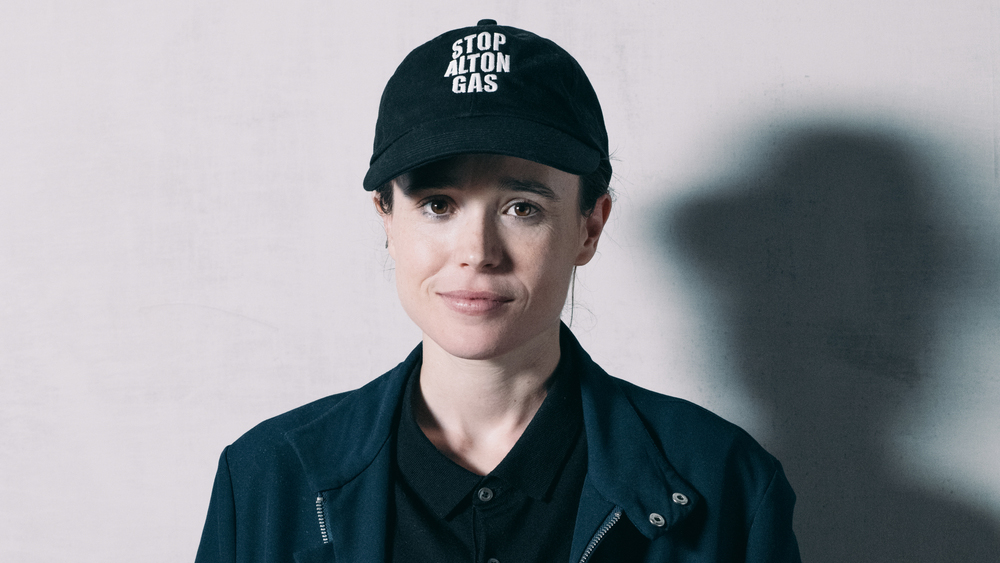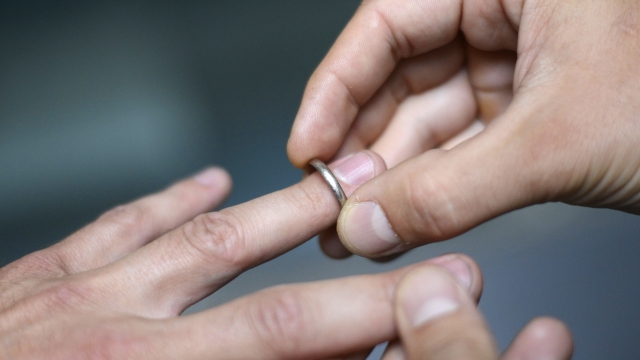We (as a society) tend to put a lot of focus on losing our virginity. There are some people who lose it really young, because that’s what they think everyone else is doing. There are some who hang onto it until they’re married because they think that’s what you’re supposed to do. There’s nothing inherently wrong with either of these approaches, but most people fall somewhere in between.
The truth is, your virginity is really only yours. No one can tell you when the right time to lose it will be, because everyone is different. Circumstances change from person to person (and sometimes even from one day to the next) and there really are no right or wrong answers. The only way to really know it’s the right time for you is if you already know all of the following information – and you still want to proceed.
How many of these did you already know? And, if you’ve already lost your virginity, how many did you know before the big day?
1. Your brain is the real MVP here – so act like it.
For many women, their brain isn’t in the right place before losing their virginity. We often tend to ignore our brains when we’re horny – which results in poor choices for a sexual partner (I’m sure you’ve been there before), decisions to “forget” safer sex practices (most people think about it – but not everyone follows through), and many other bad choices. Your brain is literally the smartest part of your body, so why would you ignore it at such a big moment in your life?
But it’s not really your fault, especially if you lost your V-Card early (according to society’s standards). The part of your brain that’s responsible for impulse control isn’t fully formed until you’re in your twenties. This basically legitimizes any use of “I was a dumb teenager back then” or “But I didn’t know any better” – it’s true!
If your impulse control isn’t fully developed yet, that doesn’t mean that you’re not capable of making smart choices, though – it’ll just take you a little longer to reach the right conclusion. For best results, you should try to wait as long as possible, to let all the information fully sink in before making your next move. You should be processing each decision for at least a full minute – at this point, it’s less impulse and more thoughtfulness, which develops a little younger.
2. Your heart is a key player, too.
When you’re young, it’s easy to confuse your racing heart for feelings of love. But the truth is, love isn’t a feeling, it’s an action – meaning the fluttery feeling you get around your crush is nothing more than hormones. (Sorry to be the bearer of bad news!)
This isn’t necessarily a bad thing, though. The butterflies you feel in your stomach and the heart palpitations that are running rampant often inspire you to bond with a person – which will create a deep, true feeling of love. (OK, so maybe love is an action and a feeling.) But generally speaking, it takes months or even years to actually fall in love with a person – everything up to that point is just chemical reactions and mixed signals from your body.
There’s nothing wrong with this, though. Just make sure that if you’re having sex with someone because you love them, you’ve given your body ample opportunity to wean itself off the initial highs. It can be very easy to confuse love and infatuation, and many people (even older people!) have a hard time telling the difference. It might be cliché, but you’ll know when it’s something greater – and it won’t fade away.
3. Your sexual health is your responsibility.
The term “sexually transmitted disease” is a bit misleading, because virgins may think that they’re completely safe because they’ve never engaged in intercourse before. But there are a few reasons why this thinking is flawed. First of all, while we associate STDs with penetrative sex, many are passed on by simple skin-to-skin contact. If you’ve ever borrowed a friend’s underwear or engaged in dry humping (which most consider to “not be real sex”), you have actually put yourself at risk for certain STDs.
Additionally, oral sex (which many do not consider to be a “virginity-taking activity”) can spread STDs as well, so make sure you’ve been tested if you’ve had any sexual contact with a partner. Truly, the only 100% safe sexual activity is no sexual activity, so make sure you’re taking the precautions that you can.
Beyond just those which involve the genitals, sexually transmitted diseases can be passed on from seemingly-unrelated activities as well. Many of the “more serious” STDs are caught from infected blood. This means that kissing someone with sores in their mouth, sharing needles (whether for piercings, tattoos, or intravenous drug use), and blood-letting activities can all cause the spread of STDs, too – even to virgins.
While you should be safeguarding yourself every step of the way, the truth is that most people don’t even know how to properly protect themselves. It’s your responsibility to be informed, and you have the right to ask your partner to be informed, as well. Many places have free or low-cost clinics to help test for sexually transmitted diseases. You should get tested regularly, even if you don’t show any signs. Many STDs have no visible symptoms, but can still be passed from one person to another. And don’t be afraid to ask your partner to get tested before you get into bed with them – it’s not rude, it’s responsible.
4. Your vagina doesn’t always know what it’s talking about (so to speak).
Maybe you get really wet when you’re around the person you’re into. Does that mean you’re ready for sex? Well, not always. This means that your body is physically preparing you to have sex with that person – but there’s still more work that needs to be done first.
All too often, we (as a society) let our actions be influenced far too much by what someone else thinks is right. And sometimes, even your vagina is out to see you fail. If you’re letting the excretion of mucus from your nether regions dictate your sex life, you’re doing it wrong.
Let me clarify to say that there is nothing wrong with enjoying sex, or even being “promiscuous” (as long as you’re doing it safely and with respect to all parties involved. But letting your vagina make your decisions for you is dangerous, both for your sexual health as well as your mental health. Many people who gave into their hormones at the first sign of an opening will come to regret it later in life.
The best course of action is to let your mind lead the way. Trust me on this one. If your brain is in the right place before sexual activity, your vagina is definitely going to cooperate, and there is a lower chance of regret. (Note: You still might regret your first sexual experience, but it’s best if you eliminate as many risk factors as possible first.)
5. Your vagina is a complicated piece of machinery.
Most people take for granted that the vagina is pretty straight-forward. It’s not. There’s quite a learning curve associated with it, and truthfully most sex ed curricula doesn’t give it enough attention. There’s a lot going on down there, and ideally you should understand it before you open the doors for someone else.
Some common misconceptions:
- You don’t pee from your vagina. You pee from your urethra, which is actually closer to the opening of the vagina than you might think. In the penis, sperm and urine must pass through the same tube, but that’s not the case for vaginas.
- Your clitoris is a lot bigger than it looks. This means that you can actually stroke it, very similar to how you might stroke a penis, and it causes a great deal of pleasure.
- Your pubic hair is there for a reason. Shaving it off is actually a bad idea – but as a society, we’ve been conditioned to think that women should only have hair on our heads. This is 100% societal construct. Pubic hair is not unclean, it does not imply that you don’t care about yourself, and demanding that your partner shave it off makes you a jerk. No exceptions.










2 thoughts on “5 Things You Need to Know Before Losing Your Virginity”
Dear Barbara
Although your article has some very useful advice for cisgender women on how to prepare themselves for their first sexual experiences, I donot understand why you mention the following: “All men started off with female anatomy. Sometimes there’s some confusion along the developmental process, and this is how transgender people “happen” – the brain develops as one gender, while the genetalia develops as another”
First of all, not all men are cisgender. Secondly, the way you describe the process of develpoment of sex characteristics in embyos is overly simplified. In reality -and as one can find out with a quick google search- it is quite more complicated than that. The reproductive system is the same in all embryos until the ninth week of development, but it is not “female”.
But the thing that struck me out the most while reading this sentence is that you actually state, in a “it’s-just-science” way, that there is a process by which trans people “happen”. Seriously? Would you state equally easily that there is a way gay people happen?
Gender and the way we experience it is way more complex than what you describe as developing a male or female brain vs body. It’s easy to understand that, simply by acknowledging the fact that not all trans people fall within the gender binary, and that not all trans people (both binary and non binary) feel that their bodies and gender identity are not alligned.
Since, this is supposed to be a website aimed both at cis and trans women, I would hope you will understand that this phrase, apart from being iirrelevant to the topic, is highly problematic and remove it from your article -you or the staff of the website responsible.
Hello, and thank you for commenting! I wanted to take a minute to address your concerns specifically so that I can deliver my best work in the future. First, let me say, thank you for bringing my attention to the oversights I’d had when originally writing this article – I do feel obligated to mention that I’m still pretty new to being a trans ally. (Not because I didn’t support the trans men and women in our community – simply because I didn’t have access to the information needed to be a good ally until much more recently. Wonderful commenters like you are part of that information and I really do appreciate you taking the time to help educate me.)
Now, I never meant to imply that all men are cisgender, but after re-reading my article, I can see how it came across that way, and I apologize. I did, however, mean to oversimplify the issue of gender, as that’s not what this post in particular was about, but I agree – I could have approached it in a better way (or, perhaps, not at all – since it’s definitely not my area of expertise). It’s obvious to me now that I still have a lot to learn before I can fully consider myself a “good ally” and I truly hope that our wonderful readers will keep commenting, calling me on my crap, and showing me how much more I have left to learn. 🙂 I want to be the best ally I can – and I know I still have a long way to go.
Last, but certainly not least, I will speak to the editors about removing that bullet point to prevent any further confusion. Again, thank you for taking the time to bring this up to me. It was never my intention to erase a big part of our community.